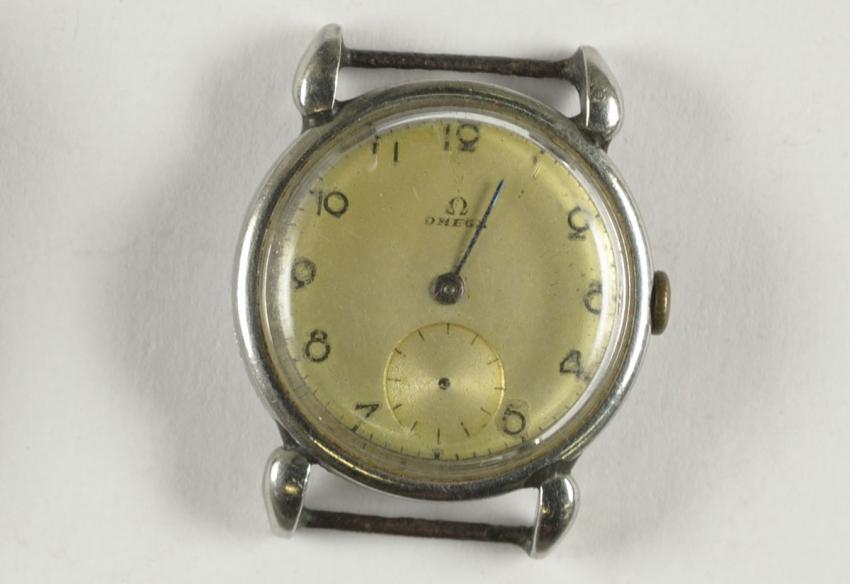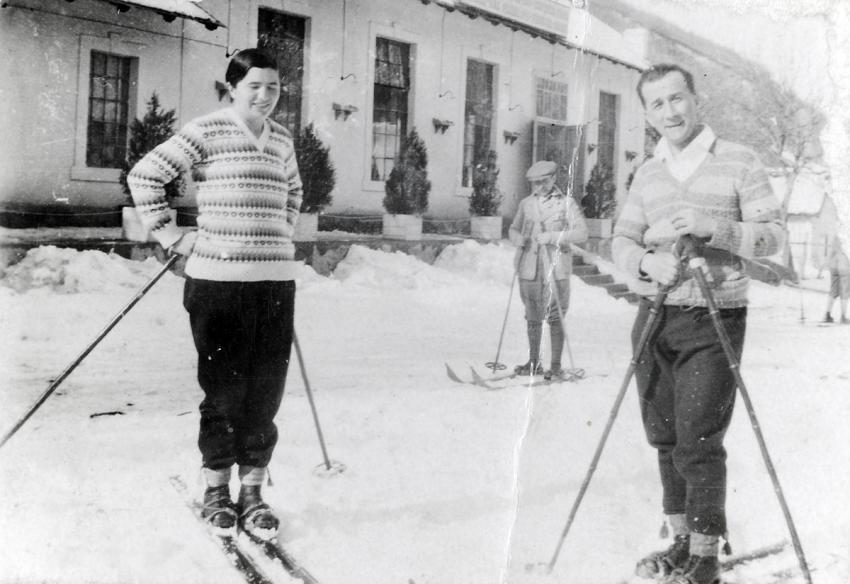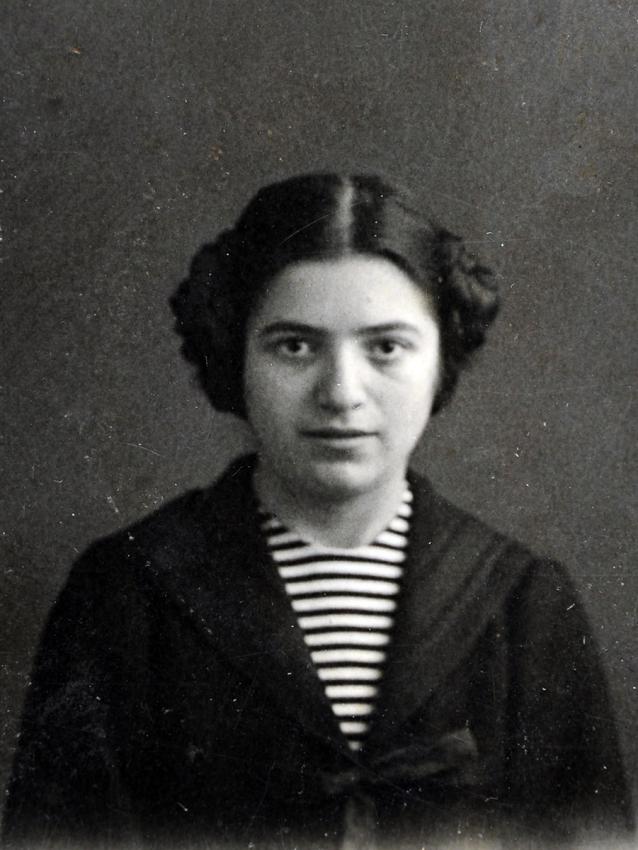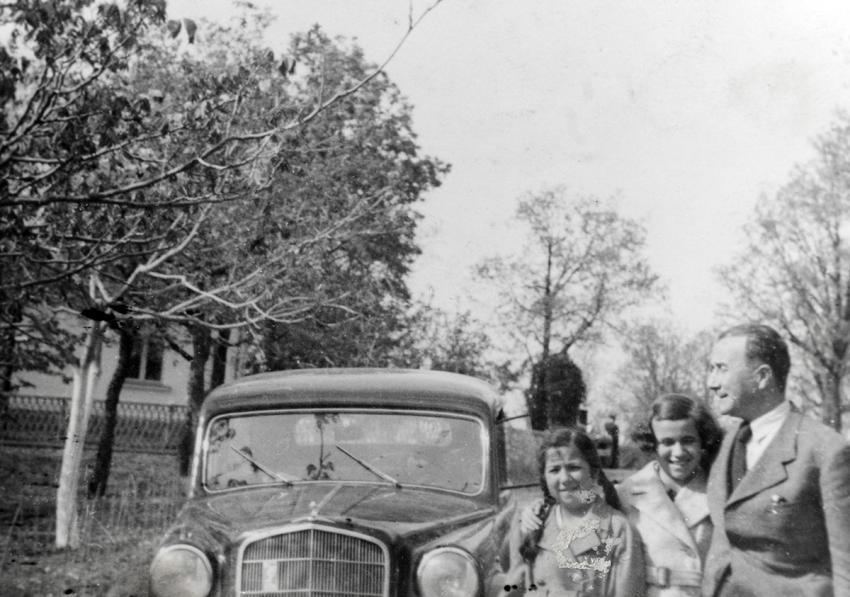
Yad Vashem Artifacts Collection
Donated by Kataria (Fürst) Shimshovits, Givatayim, Israel







Sunday to Thursday: 09:00-17:00
Fridays and Holiday eves: 09:00-14:00
Yad Vashem is closed on Saturdays and all Jewish Holidays.
Entrance to the Holocaust History Museum is not permitted for children under the age of 10. Babies in strollers or carriers will not be permitted to enter.

Yad Vashem Artifacts Collection
Donated by Kataria (Fürst) Shimshovits, Givatayim, Israel







"When [Mother] learned that Father was dead, for three days she spoke to me about us committing suicide together… and my sister – she would give her an injection while she slept. She put terrible pressure on me, but I wanted to live so much, I was twenty and I told her not to talk of such things… so she said, 'You're right, you'll get through this war but I don't have the strength anymore.'"
Dr. Aleksander Fürst, a tuberculosis specialist, and his wife Vera, a dentist, lived in Novo Vrbas, Yugoslavia in a house that included both Aleksander's x-ray clinic and Vera's dentistry clinic.
With the approach of the Germans, the couple decided to leave their home with their daughters Katarina and Miriam and move to Boja, Hungary. Aleksander became the sole provider, and in 1942 he was sent to Nagyvárad (today Oradea, Romania) to work as a doctor. In 1944, Vera and her daughters were notified that Aleksander had committed suicide following his receipt of a directive to move into the ghetto.
A short time later, the three women were woken up by the sound of banging on the window. Hungarian gendarmes entered the house and ordered them to dress and prepare for deportation. Vera told her daughters to get ready and she left the room.
"After five minutes she came back. 'Why are you not getting dressed?' I asked her. [Her answer]: 'I'm not coming with you.' I realized that something had happened. 'What did you take? What have you done?' [She answered]: 'Nothing, nothing."
Vera removed the ring from her finger, and the watch from her wrist and gave them to Katarina along with a wallet. A few minutes later Vera lost consciousness. A doctor who was brought in told the girls to say goodbye to their mother. A short time later, Vera died.
Years later, Katarina discovered that her parents had made a pact to commit suicide if they were issued with a deportation order, and made preparations accordingly.
Both girls managed to evade deportation thanks to a friend of their father's, a Hungarian police officer, and they fled to their aunt in Budapest. They survived in one of the safe houses in the city.
Katarina immigrated to Eretz Israel (Mandatory Palestine) after the war and married Emil Shimshovits, a survivor from Czechoslovakia. She worked as a nurse in a hospital for tuberculosis patients.
Katarina wore her mother's ring and watch all her life, until she made the decision to donate them to Yad Vashem.
Yad Vashem Artifacts Collection
Donated by Kataria (Fürst) Shimshovits, Givatayim, Israel

Thank you for registering to receive information from Yad Vashem.
You will receive periodic updates regarding recent events, publications and new initiatives.

"The work of Yad Vashem is critical and necessary to remind the world of the consequences of hate"
Paul Daly
#GivingTuesday
Donate to Educate Against Hate


Worldwide antisemitism is on the rise.
At Yad Vashem, we strive to make the world a better place by combating antisemitism through teacher training, international lectures and workshops and online courses.
We need you to partner with us in this vital mission to #EducateAgainstHate
The good news:
The Yad Vashem website had recently undergone a major upgrade!
The less good news:
The page you are looking for has apparently been moved.
We are therefore redirecting you to what we hope will be a useful landing page.
For any questions/clarifications/problems, please contact: webmaster@yadvashem.org.il
Press the X button to continue



